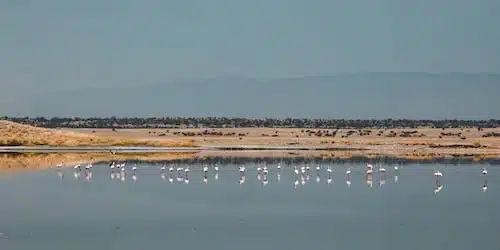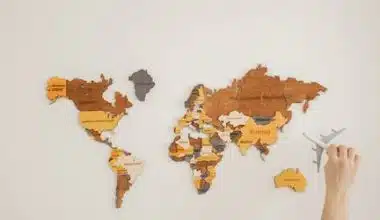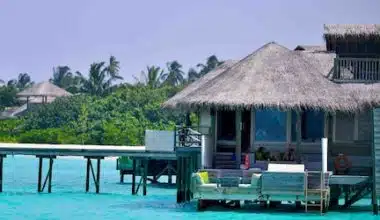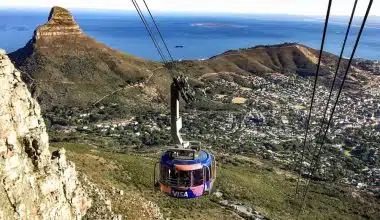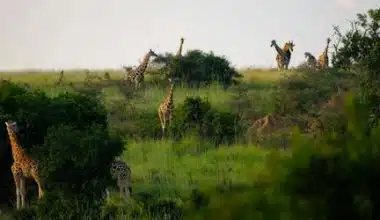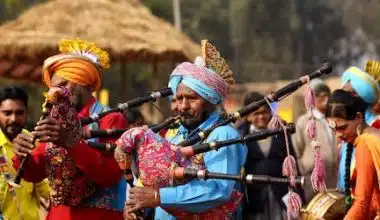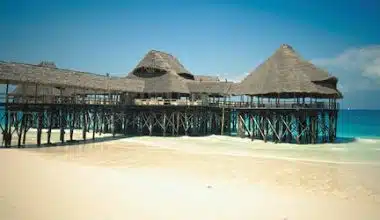A group of lakes in and around the Great Rift Valley are known as the Great Lakes of Africa. These include Lake Tanganyika, the second-largest volume and second-deepest freshwater lake in the world, and Lake Victoria, the second-largest freshwater lake in the world in terms of surface area. The Great Lakes are one of the most vulnerable water systems in the world, notwithstanding their natural beauty.
In African contexts, the phrase “Great Lakes” is used quite loosely. In contrast to their North American equivalents, the three largest lakes are surrounded by numerous small and medium-sized lakes, although the smaller ones would be regarded as extremely significant in many other nations. There isn’t a widely recognized size standard for “Great Lake.”
Discover the amazing splendor of nature in the vast landscapes that emerge around Africa’s Great Lakes. Significant natural features in the East African Rift Valley are the Great Lakes of Africa, which include Lake Victoria, Lake Tanganyika, Lake Malawi, Lake Turkana, Lake Albert, Lake Kivu, and Lake Edward. Their size, biodiversity, and economic significance to the neighboring countries are well known.
Great Lakes of Africa
A collection of lakes in and around the East African Rift Valley is known as the Great Lakes of Africa. Their size, biodiversity, and economic importance are well-known. Lake Victoria, Lake Tanganyika, Lake Malawi, Lake Turkana, Lake Albert, Lake Kivu, and Lake Edward are the principal lakes that make up the African Great Lakes.
Visitors can engage in a wide range of activities at the Great Lakes of Africa, such as fishing, hiking, and trekking in the nearby mountains, experiencing cultural heritage, and discovering wildlife. Activities include going to national parks, having fun in the water, getting to know the locals, and taking pictures of breathtaking scenery. Before traveling to the Great Lakes of Africa, familiarise yourself with the local language, currency, transportation, and lodging options. Be ready for changes in temperature, humidity, and rainfall. Respect the local culture and pick up some basic conversational words in the languages spoken there. Reserve lodging well in advance, particularly during the busiest tourist periods.
These are the characteristics of Africa’s great lakes.
#1. The Lake Victoria
In terms of surface area, Lake Victoria is the biggest freshwater lake in Africa and the second-largest worldwide. It is located in the eastern part of Africa and borders Tanzania, Uganda, and Kenya. The tremendous biodiversity of Lake Victoria is well-known, and it includes a variety of fish species, including the Nile perch.
#2. Tanganyika Lake
The world’s second-largest and second-deepest freshwater lake is called Lake Tanganyika. Situated in the Great Rift Valley, Tanzania, Zambia, Burundi, and the Democratic Republic of the Congo encircle it. Many fish species found in Lake Tanganyika are indigenous, and the lake is renowned for its remarkable biodiversity and water quality.
#3. Lake Malawi
One of the African Great Lakes, Lake Malawi (also called Lake Nyasa), is situated in the East African Rift Valley. It is the third-largest lake in Africa and borders Tanzania, Malawi, and Mozambique. Beautiful sandy beaches, a wide variety of fish species, and crystal-clear waters are the highlights of Lake Malawi.
#4. Lake Turkana
The biggest permanent desert lake in the world, Lake Turkana, commonly referred to as the Jade Sea, is the fourth largest lake in Africa. It is renowned for its distinctive geological characteristics and varied animals, and it is situated in the Kenyan Rift Valley. Numerous indigenous people call Lake Turkana home. It is recognized as a UNESCO World Heritage Site.
#5. Lake Albert
Lake Albert is what separates Uganda and the Democratic Republic of the Congo. It is a component of the Nile River system and bears Prince Albert’s name, the spouse of Queen Victoria. Renowned for its oil riches, Lake Albert serves as a vital resource for the neighboring villages.
#6. Lake Kivu
Lake Kivu is what separates Rwanda and the Democratic Republic of the Congo. One of the Great Lakes of Africa, it is renowned for having certain characteristics, such as a high concentration of dissolved gases. A possible renewable energy source could be obtained from Lake Kivu by extracting methane gas from its depths.
#7. Lake Edward
Lake Edward is what separates Uganda and the Democratic Republic of the Congo. It is renowned for its varied wildlife, which includes hippos, crocodiles, and several bird species. It is part of Virunga National Park. Lake Edward serves as a vital source of water for the nearby towns and promotes fishing in the area.
The Importance of the Great Lakes of Africa
The African Great Lakes are important for several reasons, including
#1. Geological Formation
The geological processes linked to the East African Rift led to the formation of the Great Lakes of Africa. A graben, or trough, where lake water can gather was created when two tectonic plates separated, creating the rift, a weak spot in the Earth’s crust. When water filled the basins left behind by geological uplifts, the Great Lakes were born.
#2. Ecological Importance
The African Great Lakes are recognized as hotspots for biodiversity because of their abundant biodiversity. They provide support for numerous plant and animal species, many of which are unique to the area. The lakes are important for freshwater fisheries because they support a wide variety of fish species, some of which are commercially significant.
#3. Economic Value
The surrounding countries derive substantial economic benefits from the Great Lakes of Africa. They sustain significant freshwater fisheries, which give local communities a source of food and revenue. The lakes facilitate trade and commerce by acting as transit routes.
#4. Regional Integration and Cooperation
The countries that surround the Great Lakes have used the region as a focal point for regional cooperation and integration. Peace, security, and economic development in the region are the goals of organizations like the East African Community (EAC) and the International Conference on the Great Lakes Region (ICGLR).
#5. Potential Hydropower and Water Resources
For the nations in the area, the Great Lakes are vital supplies of water. They supply freshwater for use in industry, agriculture, and homes. The lakes also offer a large amount of hydroelectric potential that can be used to produce electricity. For instance, methane gas production for electricity generation is possible in Lake Kivu.
#6. Recreation and Tourism
The Great Lakes’ natural beauty, biodiversity, and recreational activities draw visitors from all over the world. Activities available to visitors include boating, fishing, wildlife excursions, and beach holidays. In the area, tourism promotes cultural interaction, job growth, and local economies.
#7. Trade and Transportation
The lakes facilitate trade and commerce within the region by acting as vital transit routes. They promote economic integration and development by granting access to ports and facilitating the movement of products. For instance, Kenya, Tanzania, and Uganda depend on Lake Victoria as a major transit hub.
#8. Ecosystem Services and Climate Regulation
The Great Lakes operate as heat sinks and have an impact on regional weather patterns, which helps to regulate the climate. They also offer a range of ecological services, including habitat for many different plant and animal species, flood control, and water filtration. The lakes improve the region’s adaptability and general environmental health.
#9. Conservation and Research
Numerous scientific studies and conservation initiatives are focused on Africa’s Great Lakes. To learn more about how the lakes work and deal with environmental issues, researchers examine the ecosystems, biodiversity, and geological aspects of the lakes. The objectives of conservation efforts are to limit pollution, safeguard the lakes’ natural resources, and maintain their ecological integrity.
#10. Cultural Heritage
For the local communities, the Great Lakes hold great cultural and historical value. For millennia, indigenous populations have depended on the lakes for their cultural rituals, trade, and sustenance. The lakes have influenced the art, music, and way of life of the locals, shaping their cultural identities and customs.
Things to Do in the Great Lakes of Africa
There are many different experiences and activities available for tourists to enjoy in the Great Lakes of Africa. Activities in and around the Great Lakes include the following:
#1. Investigate National Parks and Wildlife
See a variety of animals, such as gorillas, chimpanzees, and elephants, by visiting national parks like Virunga National Park in the Democratic Republic of the Congo or Murchison Falls National Park in Uganda. Take a safari to see rare animals, including zebras, antelope species, and Rothschild’s giraffe.
#2. Enjoy Water Sports and Beaches
Enjoy water sports on the lakes, such as paddleboarding, canoeing, and kayaking. Soak up the sun and unwind on the stunning beaches of Lake Victoria or Lake Malawi.
#3. Experience Cultural Heritage
Discover the customs, music, and dance of the surrounding towns by exploring them. See historical places and museums, like the National Museum of Rwanda or the Kasubi Tombs in Uganda, that highlight the rich cultural legacy of the area.
#4. Take a Fishing Trip
Take up fishing on the lakes, which are renowned for having a large number of fish. Feel the excitement of landing fish like catfish, tilapia, or Nile perch.
#5. Trekking and Hiking
Take part in beautiful walks and climbs in the nearby regions, such as the Mahale Mountains in Tanzania or the Rwenzori Mountains in Uganda. Savour the magnificent vistas of the surrounding countryside and the lakes.
#6. Visit the Beach Resorts and Islands
Discover the serene environment and immaculate beaches of Likoma Island in Lake Malawi and the Sese Islands in Lake Victoria. Stay at lodges and beach resorts that provide breathtaking views and a quiet, peaceful setting.
#7. Take Part in Ecotourism and Water Conservation
Take part in ecotourism activities that support sustainable practises and educate yourself about the work being made to conserve the Great Lakes. Provide support to regional efforts and groups devoted to conserving the lakes and their environments.
#8. Investigate Volcanic Environments
Explore the volcanic Virunga Mountains, which are located in the Democratic Republic of the Congo, Rwanda, and Uganda. Hike to view the critically endangered mountain gorillas in their native environment. See the distinctive landscapes produced by volcanic activity as you explore the volcanic islands of Lake Kivu, such as Idjwi Island and Kimbwasa.
#9. Take Part in Activities Based on Water
On Lake Victoria or Lake Tanganyika, try your hand at sailing or windsurfing and make the most of the large water and windy conditions. Experience the beautiful splendour and wildlife sightings of the lakes and neighboring islands by taking a boat trip or a traditional dhow ride.
#10. Visit Historical and Cultural Sites
Discover Goma, a historic city in the Democratic Republic of the Congo renowned for its thriving marketplaces and architectural heritage. Explore Tanzania’s historic town of Zanzibar, known for its Stone Town, a UNESCO World Heritage Site, with its spice markets, little lanes, and Swahili-Arab architecture.
Factors To Consider When Planning a Visit To The Great Lakes of Africa
These are some things to be aware of when visiting the Great Lakes of Africa.
#1. Climate and Weather
The weather in the area surrounding the Great Lakes can vary greatly. Make sure your packing takes into account the specific lake(s) you intend to visit and their environment. Be ready for changes in temperature, humidity, and rainfall.
#2. Accessibility and Transportation
Choose the most efficient way of getting to the lakes and moving around the area. Depending on where the lake(s) you intend to visit are, take into account elements like the state of the roads, the availability of domestic flights and ferries, and the possibilities for public transportation.
#3. Communication and Language
Although many places surrounding the Great Lakes speak English, it’s still helpful to acquire a few simple words in the native tongues, such as French or Swahili, to show respect for the local way of life and improve communication.
#4. Banking and Currency
Learn about the current exchange rates and the local currency used in the nations that surround the lakes. In remote locations, ATMs and currency exchange services might not be easily accessible, so make appropriate financial plans.
#5. Accommodation and Facilities
Accommodation alternatives vary in terms of quality and availability, depending on the specific lake or lakes you plan to visit. Do your homework and reserve lodging well in advance, particularly during the busiest travel times. Furthermore, be advised that certain locations may have limited access to amenities, including stores, restaurants, and healthcare providers.
#6. Fees and Permits
Permits or entry fees may be necessary in some places surrounding the Great Lakes for specific activities, such as national parks or protected zones. To prevent any problems during your vacation, familiarize yourself with the local laws and secure the required permits in advance.
#7. Safety of Food and Water
Take care of the food and water you eat and drink. Steer clear of raw or undercooked food and stick to bottled or filtered water. Examine regional food and sample traditional fare from respectable restaurants.
#8. Regional Etiquette and Customs
Learn about the regional traditions and manners of the nations you intend to visit. Observe cultural customs, dress modestly when necessary, and consider what is proper conduct in places of worship or religion.
#9. Natural History and Wildlife
The wildlife of the Great Lakes region is renowned for its diversity. Keep a safe distance from animals and do not interfere with their natural habitats. It might be dangerous for you and the animals if you feed or approach wild animals. Observe any rules or norms about interactions with wildlife.
#10. Encourage your local communities
When you visit the Great Lakes region, think about helping the locals by participating in community-based tourism programmes, buying locally crafted goods, and lodging in locally owned establishments. This supports sustainable growth and boosts the local economy.
What Are the 4 Largest Lakes in Africa?
Lake Victoria, Lake Tanganyika, Lake Malawi, and Lake Turkana are Africa’s four largest lakes. The largest freshwater lake in Africa and the second largest in the world is called Lake Victoria. The world’s second-largest and second-deepest freshwater lake is called Lake Tanganyika. The sandy beaches and crystal-clear waters of Lake Malawi are well-known. The fourth-largest lake in Africa, Lake Turkana, is well-known for its distinctive geological features. These lakes benefit the surrounding people in several ways and are of great ecological significance.
How many lakes are there in Africa?
Because several definitions and classifications of lakes exist, it is challenging to pinpoint the precise number of lakes in Africa. That being said, Africa is well-known for its many lakes, among them the Great Lakes of Africa. 88 of Africa’s 677 lakes are classified as main lakes by the WORLDLAKE database. Lake Victoria, Lake Tanganyika, Lake Malawi, and Lake Turkana are a few of Africa’s most well-known lakes. Together with other lakes, these add to the rich biodiversity, cultural legacy, and economic activity of the continent.
What is the deepest lake in Africa?
Lake Tanganyika is the deepest lake in Africa. With a maximum depth of 1,470 meters (4,823 feet), it is the second-deepest freshwater lake in the world and the deepest lake on the continent, behind Lake Baikal in Russia. Lake Tanganyika encompasses four countries: Tanzania, Zambia, Burundi, and the Democratic Republic of the Congo. It is situated inside the Albertine Rift, which is the western arm of the East African Rift. With a length of 676 kilometers, it is also the longest lake in Africa (420 miles).
What Are the 3 Largest Lakes in Africa?
Lake Victoria, Lake Tanganyika, and Lake Malawi are Africa’s three biggest lakes. The second-biggest freshwater lake worldwide and the largest lake in Africa is called Lake Victoria. The second-largest freshwater lake worldwide and the second-largest lake in Africa is Lake Tanganyika. The third-largest lake in Africa, Lake Malawi, is renowned for its distinct fish species and crystal-clear waters. In the area, these lakes are highly valuable both ecologically and economically.
Which is the Biggest lake in Africa?
Lake Victoria is the largest lake in Africa. It is the second-biggest freshwater lake worldwide and the largest in Africa. Lake Victoria is between Tanzania to the northwest, Kenya to the southwest, and Uganda to the southeast. It is roughly 68,800 square kilometers (26,600 square miles) in surface area, with a maximum depth of about 84 meters (276 feet).
Where are the Great Lakes in Africa?
Lake Victoria, Lake Tanganyika, and Lake Malawi make up the Great Lakes of Africa, which are situated in the East African Rift Valley. These lakes, as well as smaller ones like Lake Turkana, Lake Albert, Lake Kivu, and Lake Edward, sustain regional economies, communities, and biodiversity across several nations. Kenya, Tanzania, Uganda, Rwanda, Burundi, the Democratic Republic of the Congo, Malawi, Mozambique, and Zambia are all included in the region.
Summary
The Great Lakes of Africa are important for tourism and recreation, transportation and trade, regional integration, ecological significance, economic worth, and water resource and hydropower potential. They were created as a result of the East African Rift, are home to a wide variety of plant and animal species, and are essential routes for trade between Tanzania, Kenya, and Uganda.
- FESTIVALS IN AFRICA: The Rich Cultural Heritage
- SERENGETI SAFARI: All You Need to Know
- SEYCHELLES RESORTS: Your Guide to a Luxurious Getaway in Paradise
- TRIP TO AFRICA: Best Destinations & Packages
- Best Beaches In Africa
